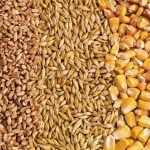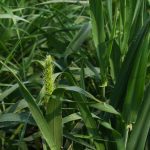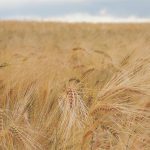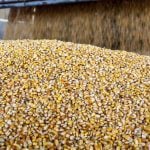Although there has been some upward movement in feed grain prices, particularly in Alberta, it’s not domestic demand that’s pushing them higher, said Jim Beusekom, president of Market Place Commodities in Lethbridge on Feb. 19.

Feed Grains Weekly: Domestic prices remain flat

Feed Grain Weekly: Corn affecting barley prices in Lethbridge
Corn imports entering Lethbridge have lowered prices for feed barley compared to those in Edmonton.

Export flurry boosts EU barley market to ease grain glut
European Union barley exports could reach a 10-year high this season as brisk feed demand overseas and reduced competition from the Black Sea region help the EU to shift a large harvest.

Feed grain weekly: Barley bids firm in early February
Feed grain bids in Western Canada have shown some modest strength recently, although holding rangebound overall.

A look at disease prevalence in Alberta crops in 2025
Early stripe rust in the growing season increases its chances to spread exponentially
Reading Time: 5 minutes Crop assurance program lead gives irrigated farmers a recap of disease prevalence in crops throughout Alberta

Feed Grains Weekly: More consideration being given to U.S. corn
There’s beginning to be a shift within the Canadian Prairie feed market towards importing United States corn, said Darcy Haley, vice-president of Ag Value Brokers in Lethbridge.

Corn market looks bullish; barley has potential
Saudi Arabia dipped into barley feed market in late 2025, while China made significant purchases
Reading Time: 3 minutes Canadian commodity market analyst makes his predictions on what barley and corn commodities will look in 2026.

Feed Grain Weekly: Barley still the king of Canadian feed grains
Brandon Motz of CorNine Commodities in Lacombe, Alta. said barley is still the preferred feed grain of choice here and abroad.

Feed grains weekly: Large U.S. corn crop to weigh on values
Confirmation of a record-large corn crop in the United States should keep feed grain bids in Western Canada under pressure in the near term, as the domestic market works to remain competitive.

Feed Grain Weekly: Higher export prices could push up those for feed
If there’s one bright spot in the Prairie feed grain market that would be export prices for barley and wheat. Susanne Leclerc of Market Master Ltd. in Edmonton said the grain elevators have upped their prices in order to meet export demand.

